
The Connecticut Western Reserve was a portion of land claimed by the Colony of Connecticut and later by the state of Connecticut in what is now mostly the northeastern region of Ohio. The Reserve had been granted to the Colony under the terms of its charter by King Charles II.

Reuben Wood was a Democratic politician from the U.S. state of Ohio. He served as the 21st governor of Ohio.
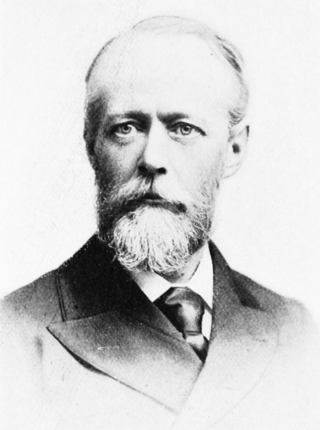
William North Rice (1845–1928) was an American geologist, educator, and Methodist minister and theologian concerned with reconciliation of science and religious faith.

Peter Marshall Hitchcock was an attorney, teacher, farmer, soldier, legislator, and jurist. His judicial career included 28 years service on the Ohio Supreme Court, 21 years of them as Chief Justice.

Edmund Rice, was an early settler to Massachusetts Bay Colony born in Suffolk, England. He lived in Stanstead, Suffolk and Berkhamsted, Hertfordshire before sailing with his family to America. He landed in the Colony in summer or fall of 1638, thought to be first living in the town of Watertown, Massachusetts. Shortly thereafter he was a founder of Sudbury in 1638, and later in life was one of the thirteen petitioners for the founding of Marlborough in 1656. He was a deacon in the Puritan Church, and served in town politics as a selectman and judge. He also served five years as a member of the Great and General Court, the combined colonial legislature and judicial court of Massachusetts.
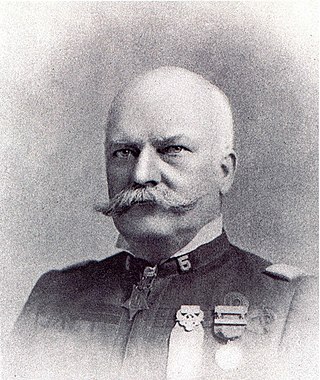
Edmund Rice was a soldier in the United States Army and a Medal of Honor recipient who achieved the rank of Brigadier General.
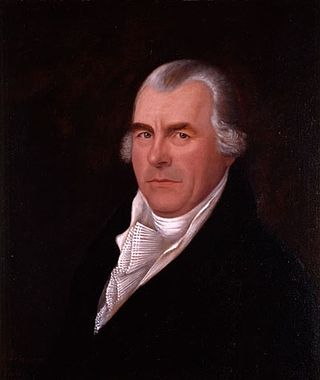
Elijah Brigham was a U.S. Representative from Massachusetts.

Americus Vespucius Rice was a nineteenth-century politician, banker, and businessman from Ohio. He served in the Union Army during the American Civil War and was appointed brigadier general at the end of the war, on May 31, 1865. From 1875 to 1879, he served two consecutive terms in the United States House of Representatives.
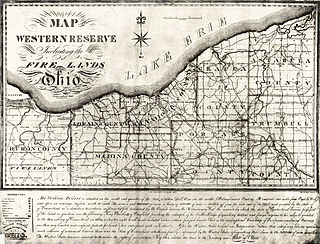
Capt. John Wheeler Leavitt (1755–1815), born in Suffield, Connecticut, was an early settler of Ohio's Western Reserve lands, where members of his family had bought large tracts from the state of Connecticut, and where Capt. Leavitt became an early innkeeper, politician and landowner in Warren, Trumbull County, Ohio. Capt. Leavitt was a member of the Connecticut Land Company and along with his cousin Ebenezer King from Suffield, paid over $51,000 for approximately 78,500 acres (318 km2) of Ohio land, which included the township of Warren. The Leavitt family of Warren would go on to play a substantial role in the history of their adopted town and in Ohio.

Richard Henry Rice was an American mechanical engineer and inventor who is known for many patents related to improvements to the Corliss steam engine, and his partnership in founding the Rice & Sargent Engine Company of Providence, Rhode Island.
James Stephen Rice (1846–1930) was an American businessman and rancher who was a pioneering resident of Orange County, California and a civic leader in Tustin, California.
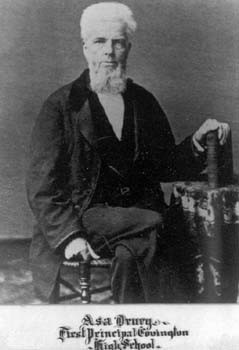
Asa Drury (1801–1870) was an American Baptist minister and educator primarily teaching at Granville Literary and Theological Institution in Granville, Ohio, and the Western Baptist Theological Institute in Covington, Kentucky, and establishing the public schools in Covington. He is best known for his antebellum abolitionist views and his role in establishing the Underground Railroad in Ohio.
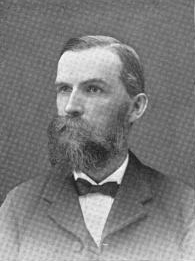
Simon Herbert Howe was a Massachusetts businessman and politician who was the first mayor of Marlborough, Massachusetts, and a member of the Massachusetts House of Representatives.
Arthur Otis Howe was a dairy farmer and electrical engineer from Newfane, Vermont and a Republican member of the Vermont House of Representatives, serving from 1931 to 1933 and then reelected in 1937 and 1945. He also served in the Vermont Senate from 1947 to 1948.

Elliott Fitch Shepard was a New York lawyer, banker, and owner of the Mail and Express newspaper, as well as a founder and president of the New York State Bar Association. Shepard was married to Margaret Louisa Vanderbilt, who was the granddaughter of philanthropist, business magnate, and family patriarch Cornelius Vanderbilt. Shepard's Briarcliff Manor residence Woodlea and the Scarborough Presbyterian Church, which he founded nearby, are contributing properties to the Scarborough Historic District.

Charles Tudor Williams was an American businessman, author, composer, linguist, and educator. He was an older brother to Edward Porter Williams,, and uncle of pioneering American Neurosurgeon Dr. Harvey Williams Cushing.
Edward Hyde Rice was an American academic who led many institutions of secondary education in Massachusetts
Horace Jacobs Rice was an American attorney, legal instructor, and academic dean.
William Chauncey Rice was an American academic and lawyer in Boston, Massachusetts.














